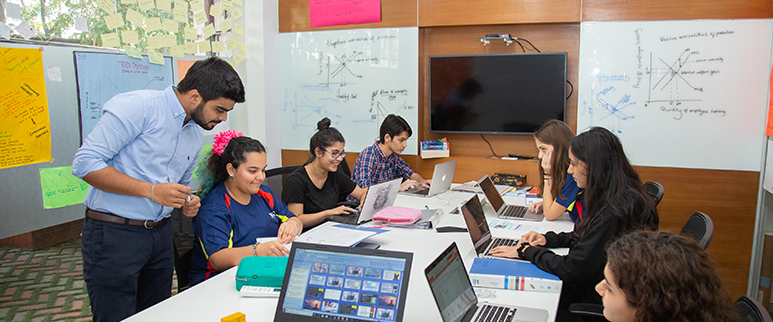CAS is at the heart of the IB Diploma Programme as it is one of the three core requirements. It is a vital part to the development of a student becoming a well-rounded individual with compassion, ethics and an understanding of the world around them. It helps to shape the adults that they will become and give them an international mindedness that will enable them to cope with an increasingly globalized society. It is fully integrated and connected to the learner profile and seeks to provide students with the opportunities to fulfill this learner profile.
The three strands of CAS are:
Creativity: Arts, and other experiences that involve creative thinking.
Activity: Physical exertion contributing to a healthy lifestyle.
Service: voluntary exchanges that have learning benefits for the student.
The seven CAS learning outcomes are also strongly linked to the learner profile, with the breadth of activities being offered at DSB giving ample opportunity for students to successfully demonstrate both sets of criteria. Students are provided various opportunities to Organize, participate, volunteer many important events independently.
The CAS programme at DSB will encourage internationalism through collaboration between various nationalities within the activity schedule. It shall also attempt to develop links with international organizations and, given time, organize trips to complete CAS challenges. Theory of Knowledge shares many links with the CAS programme. This is particularly shown through the continual cycle of reflection that CAS encourages, enabling students to consider what they have learned, why they have learned it and how they have learned it. The cycle of experiential learning discussed later within this document has strong TOK links.

